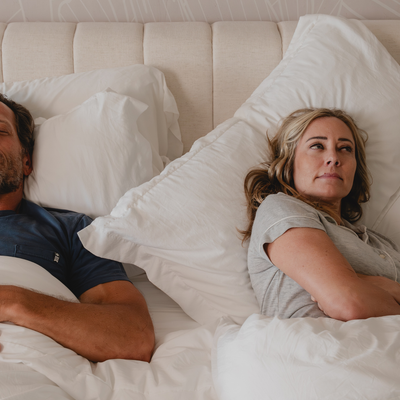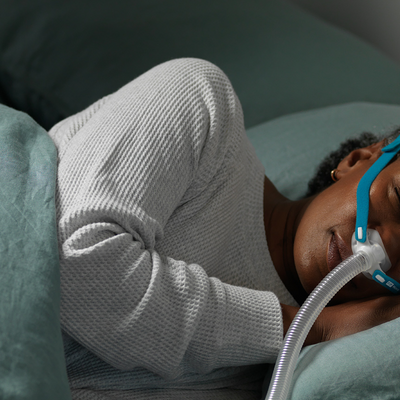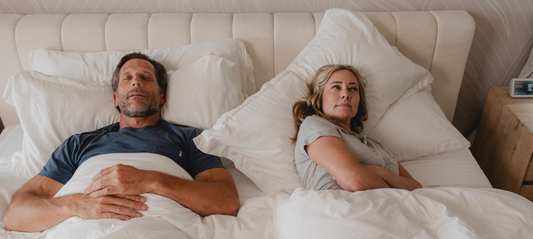It is estimated that 26% of adults between the ages of 30 and 70 suffer from some form of sleep apnea. If you’re wondering if your lack of sleep is a result of sleep apnea, knowing the signs of sleep apnea is the first step in getting you back on the road to the rest you need.
What is Sleep Apnea?
Sleep apnea is generally defined as a condition where your breathing stops and starts several times while you sleep, resulting in a lack of oxygen.
There are two types of sleep apnea. The most common type is Obstructive sleep apnea (OSA), which occurs when your upper airway becomes blocked multiple times while you sleep, reducing or cutting off airflow. Central sleep apnea (CSA) happens when your brain does not send the right signals to the muscles needed to breathe.
An undiagnosed sleep disorder such as sleep apnea can pose a serious risk to your health and quality of life. Left untreated, sleep apnea can lead to heart disease and other serious medical issues. Knowing the signs and symptoms of sleep apnea can help you determine if you should seek medical help, including an at-home sleep test.
Signs you Might Have Sleep Apnea
1. Loud snoring
One of the most common symptoms of OSA is snoring. When the throat muscles relax and block the airways, possibly forcing the air through the nasal cavity. However, not everyone who snores has sleep apnea. If the snoring gets louder or is accompanied by a pause in breathing or a gasp, sleep apnea is more likely. You might consider asking a bed partner to observe and let you know (if they haven’t already!) about your snoring volume and patterns.
2. Gasping or Choking
According to one study, gasping or choking during sleep is the most reliable indicator of sleep apnea. If you wake up gasping or choking, you should seek medical attention.
These apnea episodes might not wake you up, so it is important to consult with a sleeping partner to determine if this is happening.
3. Morning Headaches
A morning headache affects 5% of people with OSA. While not as common a symptom, consistently waking up with a headache could be a sign that you’re experiencing sleep apnea.
The best treatment for a morning headache, or any other symptom due to OSA is sleeping with a CPAP (continuous positive airway pressure) machine. A CPAP machine uses a hose connected to a nose or face mask to deliver constant air pressure, helping you to breathe better while you sleep.
4. Excessive Daytime Sleepiness
Because your sleep is constantly interrupted with apnea episodes, you’re missing out on quality, sustained rest. If you wake up feeling tired and experience sleepiness through the day, it’s likely that you’re experiencing a sleep disorder such as sleep apnea.
Daytime sleepiness can have a negative effect on your daily life including your cognitive function, your ability to regulate mood, and your ability to function in your daily responsiblities. With the right treatment, you can get more consistent rest and improve your waking hours.
5. Depression and Irritability
Without quality rest, your ability to regulate your mood and handle stressors decreases. One study found that there is a significant overlap in depressive and anxious symptoms for those who experience OSA. The same study found that if left untreated, sleep apnea can cause permanent brain damage.
If you are consistently experiencing irritability or depression, take action to see if a sleep apnea is at the root of your issues.
Take your sleep health seriously! Don’t disregard signs and warnings that might indicate a sleep problem. Getting treatment to support optimal sleep health is vital for your physical and mental health.
















